Venezuela, a land of contrasts, torn apart by bloody protests fighting “the Maduro diet”
Venezuela has become truly a land of great contrasts. The astonishing landscape, its natural beauty and large oil reserves have become the backdrop of bloody protests, soaring inflation and shortages hard to imagine in a modern world.
Venezuela, a tourist’s paradise, except the violent protests that have shaken the nation to its core. A land of endless natural beauty, but the remarkable beaches and the snow covered Andes have become just the backdrop of a massive economic problem and bloody social upheaval.
For months now Venezuela has been witnessing violent clashes between anti-Maduro protesters and government forces, and the country seems to be standing on the edge of a cliff as it awaits elections. Hit by inflation and lacking basic goods, protesters say they are committed to change the current regime which they see turning into a dictatorship.
A cursed legacy
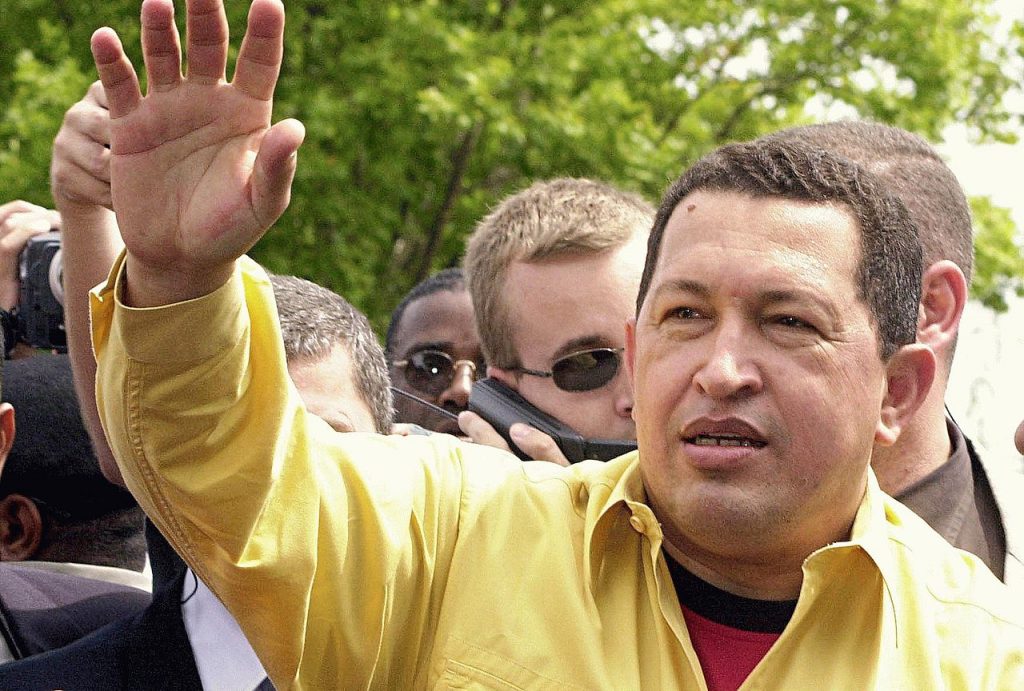
Venezuela’s problems are not new, and they started long ago and are inextricably linked to oil.
Venezuela possesses the largest proven oil reserve in the world and oil revenues have been used by the administration of late Hugo Chavez to subsidize social programs. And Venezuela’s economy is highly dependent on oil.
The politics of paying with oil for everything from food subsidies to other social programs was sustainable just as long as oil prices were high. During Chavez’s rule, oil hit a record price of $100 dollars a barrel. But then, oil prices started to fall dramatically and this sent the economy on a downward spiral.
With more than half of the country’s GDP relying on oil and representing over 90% of all exports, the fall in prices heavily hit the South American nation.
Chavez also had to face protests, and most coincided with the fall in oil prices and this patterned remained unchanged after his death.
Nicolás Maduro, assuming the office of the presidency after Chavez’s death, did little to implement change and liberate the country from the yoke of oil. Maduro, a former bus driver turned union leader and Foreign Affairs Minister under Chavez, continued the late president’s policies and registered what was reported to be the worst economic crisis in the nation’s history.
Inflation rose to unseen levels and the government responded with wage increases. And in 2014, authorities stopped releasing official documents regarding the state of the economy.
It was about the same time that the mayor of Venezuela was facing clashes on the streets and neighbouring countries were increasingly becoming concerned about refugees coming across the border, sent into exile by poverty and the risk of starvation.
In the nation’s capital, the local newspapers reported constant looting of stores and pharmacies while prices continued to soar and citizens were deprived of basic foods like bread, oil, flour and milk. There were reports that food trucks were being looted while on the road and the scarcity became even more severe.
Venezuela’s socioeconomic status was in free fall while crime, inflation, poverty and hunger were on the rise.
The opposition was calling for Maduro to resign, and the president responded by blaming foreign powers for Venezuela’s plague. A phrase commonly heard in Easter Europe during the Soviet reign.
Sky-high inflation and millions of bolivars
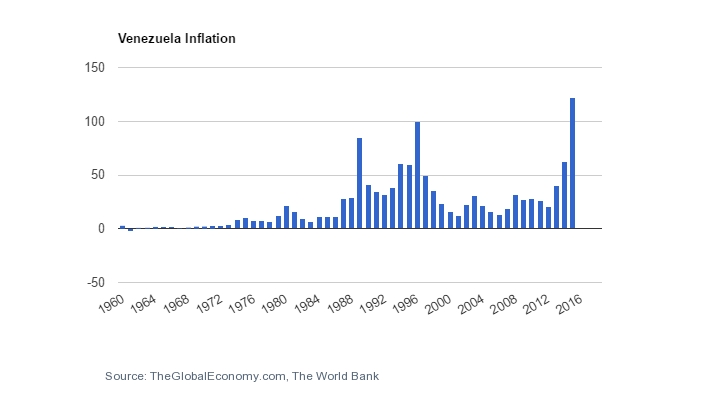
In January, the country’s inflation rate hit the all-time high of 800 per cent, according to Trading Economics. And the consumer prices soared by 741% year-over-year in the second month of 2017. This translated to citizens having to spend millions on household items and services like healthcare and children’s education.
CENDAS, the Centre for Documentation and Social Analysis, reported back in March that the basic family basket has reached 832,259.95 bolivars and hygiene products registered the highest surge in prices. Medicine was becoming less and less available while shaving products became akin to luxury items.
Fish and shellfish, milk, cheese, eggs, salt and sugar have seen their prices grow by 20 to 10 per cents since the last report was issued. And in parallel, the country was facing a growing black market.
According to the Central Bank of Venezuela, the country only has $10.5 billion in foreign reserves left while for the rest of the year, outstanding debts have reached $7.2 billion.
And the GDP growth is now in the negative, data from the last years show.
“The Maduro diet”
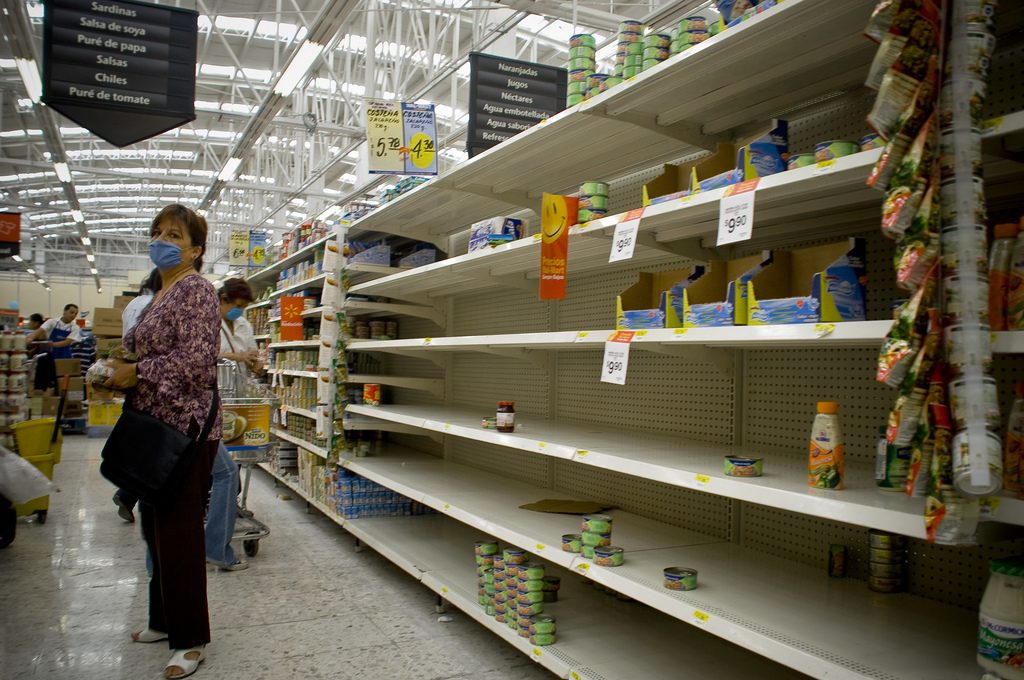
More and more, Venezuela seems to be fighting for survival and the food scarcity has been dubbed “The Maduro diet.” But the expressions seems quite poignant in describing not only the shortages but also the response of the president.
Hungry and impoverished, lacking basic necessities, and whit a government promising wage increases amid soaring inflation while trying to stifle the opposition, the Maduro diet seems eerily similar with the situation faced by Easter European countries right before the fall of communism.
When citizens took to the streets, driven by hunger and political resentment, Maduro responded by mobilizing the army in an effort to keep the order. He started consolidating his powers, the Supreme Court dissolved the parliament so Maduro’s ruling party controlled the remaining branches of the government. The decision of the Court was overturned, but the signal was clear.
Protesters were again in the streets and the opposition warned that Maduro was transforming the country into a fully-fledged dictatorship. And foreign powers also started voicing concerns over Maduro’s actions.
A country in protest
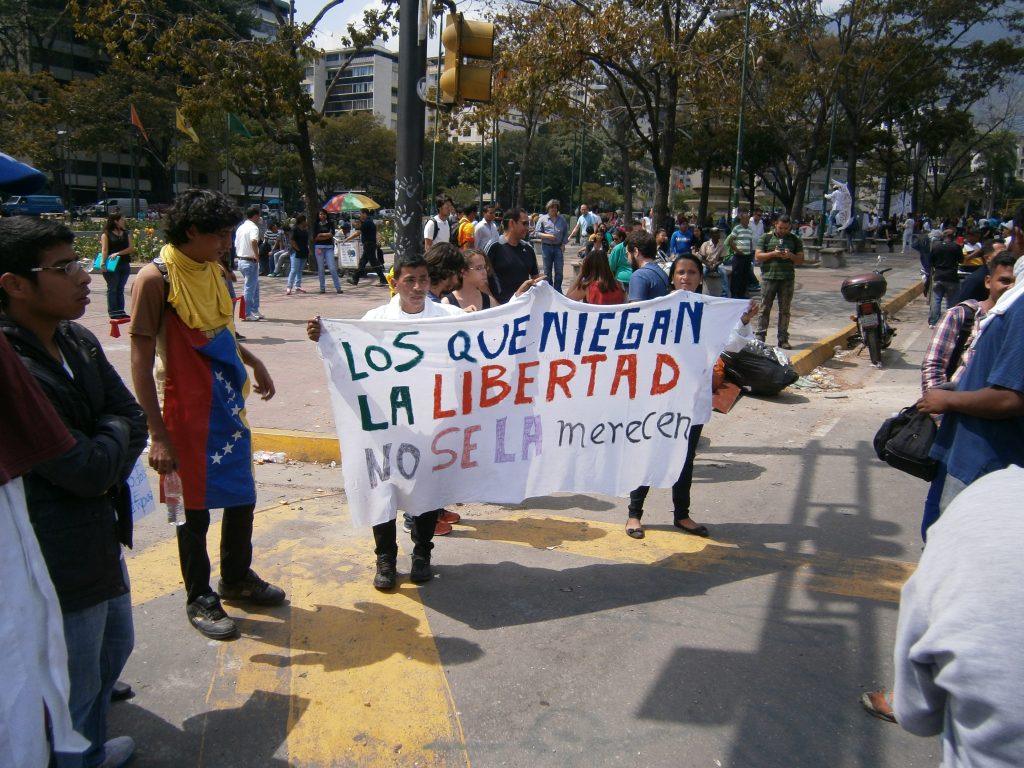
For months now, protesters in Venezuela are asking Maduro for his resignation but to no avail. The clashes have become even more violent with reports saying that Maduro is responsible for 59 deaths and the imprisonment of opposition leaders.
In trying to silence its detractors, Maduro experienced the first series of protests back in January 2017 when people took to the capital’s street, opposing the arrest of opposition figures.
Violence again erupted after the constitutional crisis with the decision of Venezuela’s Supreme Court.
The biggest protest was organized at the end of April and according to reports, some 6 million citizens participated in nation-wide protests asking for Maduro to step down and new elections to be organized.
The military tried to crush the protests and the first victims, a 23-year old woman and a National Guardsman, were recorded the same day. And the death toll rose by the end of the month.
Large protests were organized at the beginning of May with citizens marching on governmental buildings and calling Maduro a dictator. The police responded brutally to the peaceful protest firing teargas into the crowds and a Reuters report, showing a vehicle running over a protester, caused further outrage.
In response to the growing opposition and social unrest, on 13 May, President Maduro declared a “State of Emergency and Economic Emergency throughout the national territory” which practically suspended civil rights and gave himself more power to rule by decree. He also called on the military to help with the draft of a new constitution.
Sven days later, the opposition staged the biggest protest yet. Called “We are millions”, the march was marking the 50th consecutive day of protest throughout the country. While the opposition tried, against the barricades, to reach Caracas’ city center, and marched peacefully, riots broke out in Barinas and other parts of the country. Statues of Chavez took the wrath of the protesters while his childhood home was set ablaze.
Hundreds were injured in the march and the death toll reached eight while the president seemed more determined than ever to hold on to power as chants calling him a tyrant were getting louder.
Most recently, on Monday, two opposition leaders were injured by police forces.
Accusations and foreign reaction
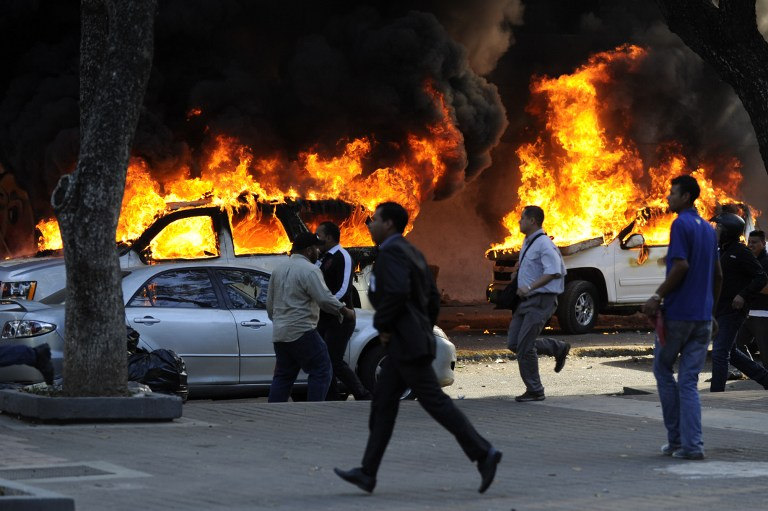
The ongoing protests have sparked concerns over civil rights being suspended while arrested protesters have reported being tortured and beaten.
Whit a state-run television, disinformation is another problem while journalists covering the protests have been attacked, beaten, arrested and sprayed, one reporter told the Committee to Protect Journalists.
Social media sites have become a tool for protesters trying to get their message across.
There are also questions raised about the tear gas used by the police. The red color of the gas has made watchdog groups wonder if it has expired or if it contains other agents but according to officials, the color has been added in order to make it easier for police to recognize and identify protesters.
The military has been accused of protecting the “murderous” Maduro regime while other reports out of Venezuela have suggested that one military official has proposed the use of snippers against protesters.
Amid the growing climate of unrest, one opposition leader has come out against Goldman and Sachs, as the company purchased bonds from the government-controlled oil company. Julio Borges, running the opposition party Primero Justicia warned that deals like this keep Maduro in power giving him the infusion of capital he needs.
Borges’ colleague, Henrique Capriles said in a statement that he believes this government is capable of burning the whole country just to stay in power.
Meanwhile, the European Union is asking for the release of prisoners and the establishment of an election calendar to give voice to the will of the people.
No end in sight
After ten month of protests and with a failing economy, the end of the Venezuela crisis still seems far away. Foreign powers, especially neighboring countries are asking for solutions but the president does not seem inclined to relinquish its power.
But protesters are not giving up and the opposition will continue to ask for reforms and propose economic plans to bring the country back from the edge of cliff.
Today marks the 60th day of anti-government protests in #Venezuela. This is everyday life in #Caracas for the past 2 months pic.twitter.com/XLrbW2S3Kj
— Mariana_Atencio (@marianaatencio) May 30, 2017